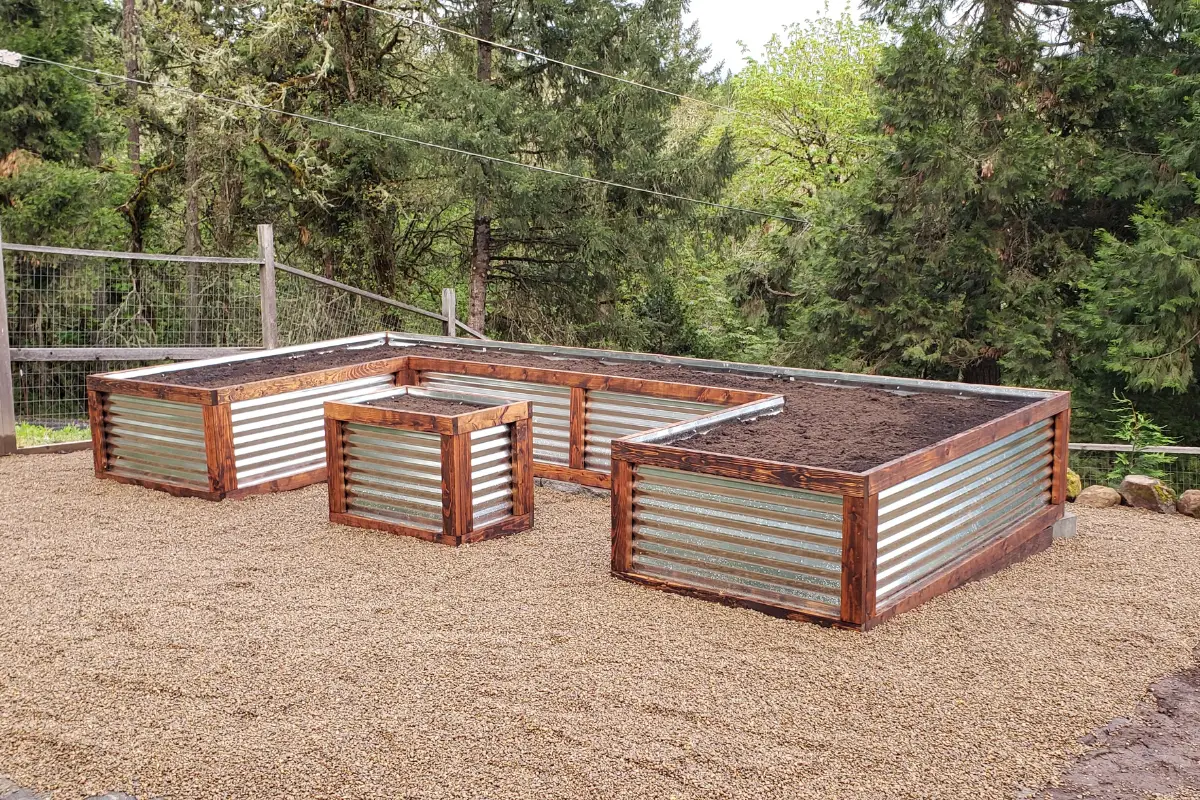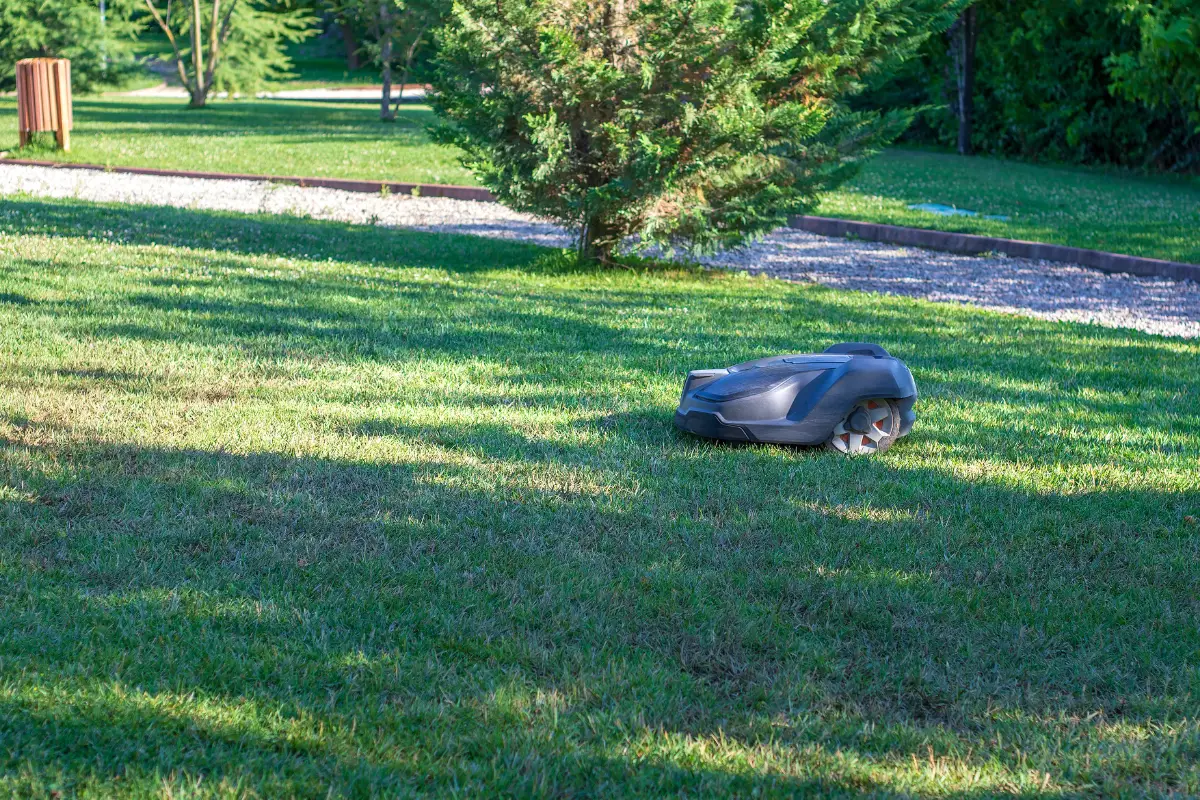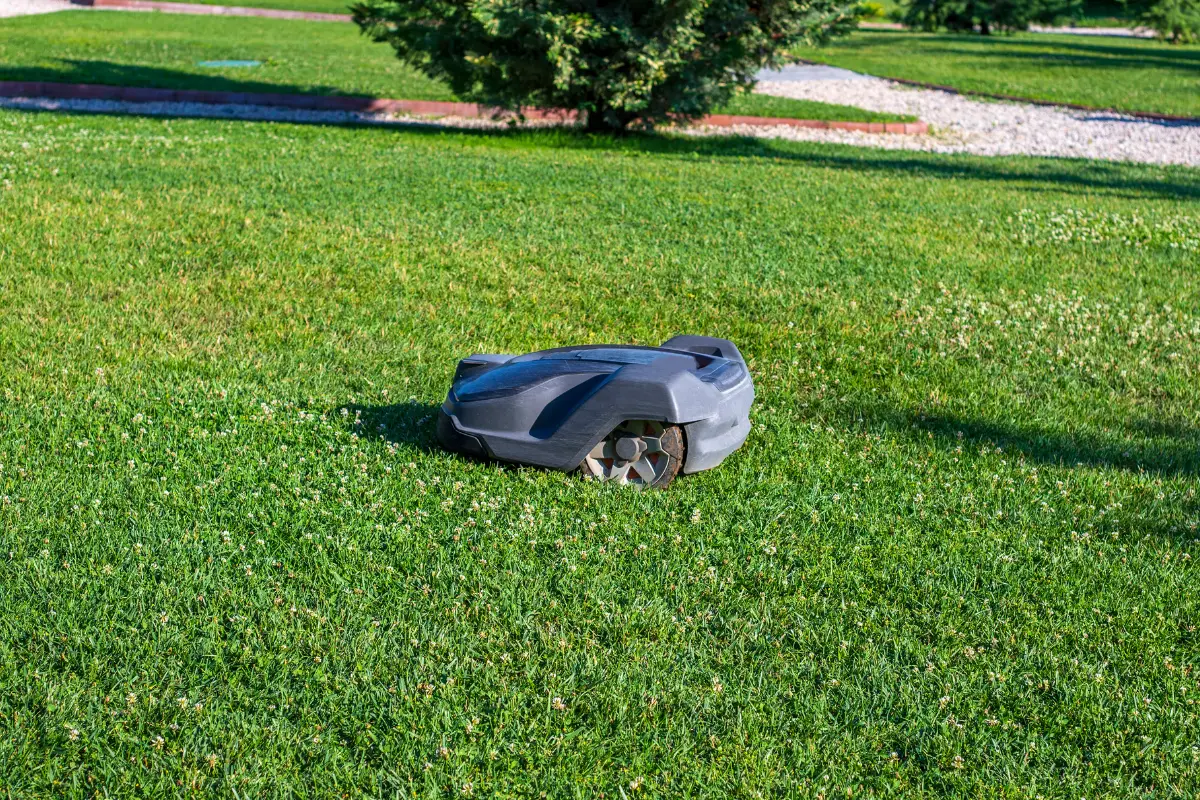The life expectancy of a pallet-raised bed will depend on the kind of wood used. Most pallets are made of pine or oak, but the wood tends to be soft and does not last very well. Most people find that pallet-raised beds will only last for around five years at best.
Of course, this does depend somewhat on the conditions too. If your raised bed is in a dry, sheltered area, it will last for longer than if it is exposed to the elements. A lined raised bed will often last for longer too, but it will give you plastic that eventually needs to be disposed of.
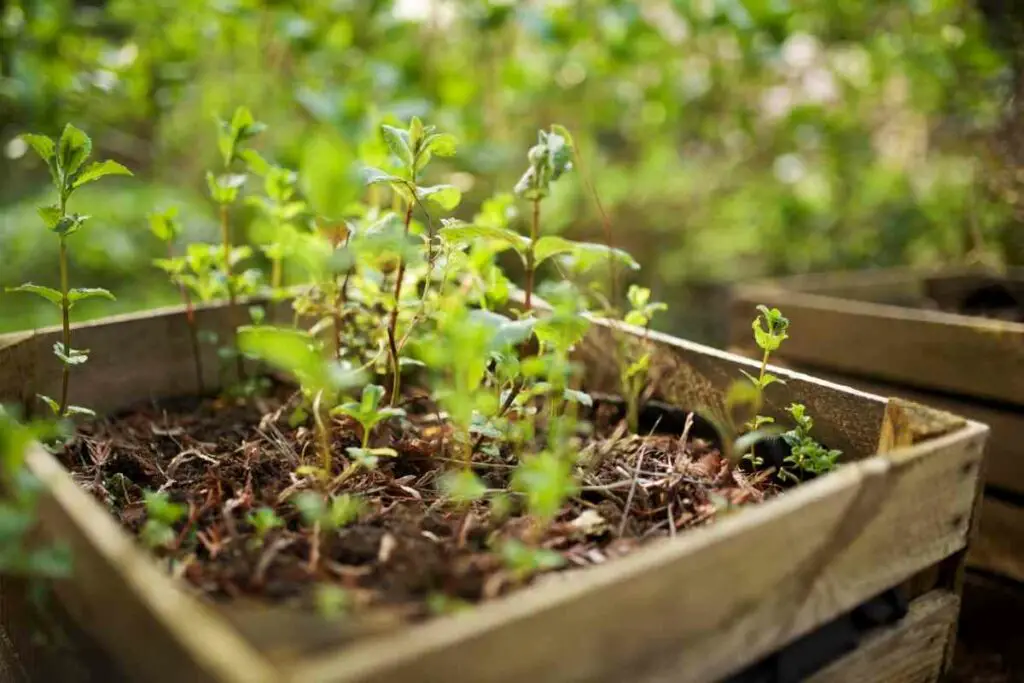
Table of Contents
Are Pallets Good For Raised Beds?
Pallets are a reasonable choice for raised beds. They are often inexpensive or even free, which makes them attractive for gardeners who are just setting up raised beds. However, they do suffer from a few key problems.
The first and most significant is that they will not last for very long compared with other materials.
Pine, the commonest material choice, is a softwood that has almost no resistance to rotting when it is left in contact with wet soil. The wood particles readily absorb and trap moisture, and the wood will break down quickly.
Remember too that pallets tend to be made of thin pieces of wood that are often low quality. The purpose of pallets is usually to transport things; they are therefore not designed to be enormously durable.
Because the wood is thin, rough, and untreated, it will start to break down fairly quickly. This means that you will need to replace the raised beds before many years have passed, which is time-consuming. If you pay for your pallets, it also comes with a cost, albeit usually a small one.
If you have access to free pallets, you will still have to dedicate time to rebuilding the beds every few years. This will mean removing the soil, disturbing the microorganisms, etc. It is not ideal.
Another disadvantage of pallets is that they do not look great. That may not matter much to you, but if you want your raised beds to be aesthetically appealing, you’re going to spend a lot of time sanding and smoothing the pallets, and they still won’t look amazing even when you’ve finished.
Of course, the big advantage that pallets have is they tend to be readily available and cheap. If you have the time to rebuild your beds every few years and you don’t particularly mind what they look like, pallets can be an excellent choice.
What Causes Pallets To Break Down?
The pallets will break down because they get wet. Wood, being a natural material, rots when it is exposed to the elements. Wind and especially rain will slowly weather at the wood and compromise its structure. Eventually, fungi will start breaking it down.
You will see this happening; your wood will turn darker and pieces of it will start to break away from the pallet.
This will often happen around blemishes in the wood first (e.g. a notch, or a hole where you have screwed into the wood) but can happen in other areas too. It will spread, and the pallet will start to flake.
Once it is rotten, a pallet will have no structural integrity, and your raised beds will simply fall apart. You will need to compost the wood and start again at this point.
You can’t prevent this from happening, even if you line your pallets. Some moisture will get into the wood and destroy it eventually. A lined bed may last for longer, but it generates plastic, which you may prefer to avoid in your garden where possible.
A raised bed that is undercover will still get damp from watering and general air humidity. It may last for longer, but it will still break down.
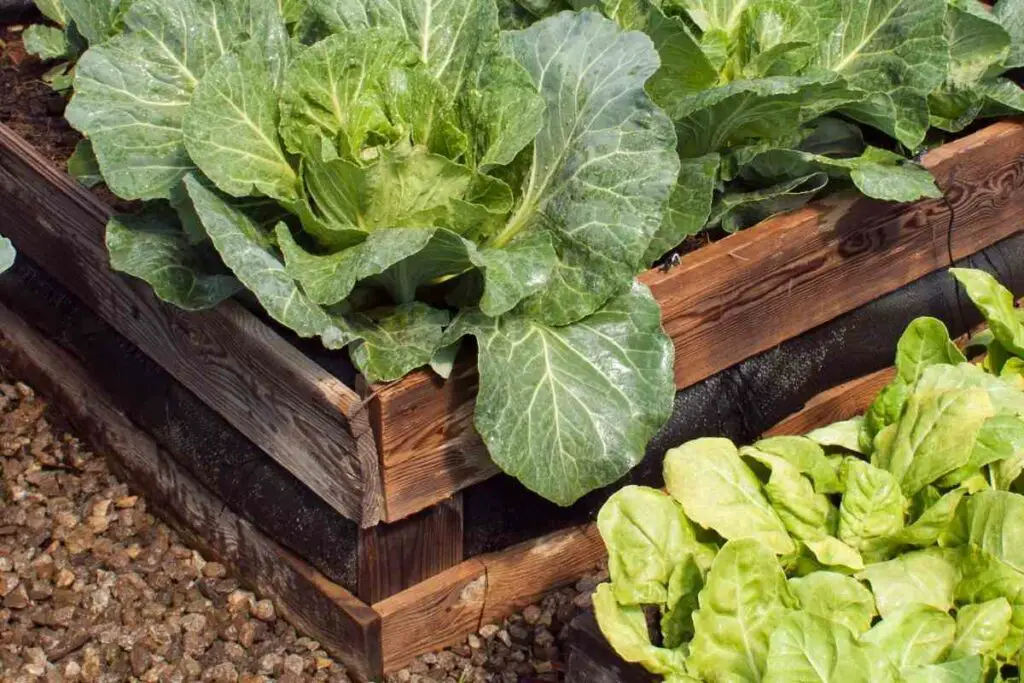
Which Woods Will Last For Longer?
If you choose a more robust wood, it should last for a lot longer. For example, redwood and cedar both last very well because they are resistant to rotting, even when they are not treated. In the right conditions, they could last for thirty years, although some will only manage about fifteen.
Similarly, other woods like juniper have an excellent expected lifespan – again, around thirty years. Juniper should not rot quickly even if the raised bed is perpetually damp.
Is It Economically Better To Build Robust Raised Beds?
It’s difficult to say for sure because this depends on the cost and availability of materials near you, as well as the size of the beds you plan to build. However, you should certainly do the sums before settling on a material.
Even if you only pay a small amount for your pallets, this cost will add up if you have to replace them every three to five years.
For example, if you have to replace a pallet bed every three years at the cost of £15 per pallet, you’ll be paying about £150 to replace a one-pallet bed over the course of thirty years. You will also have to cost in other materials such as screws and brackets.
Compare that with a juniper bed that will last for thirty years, and consider whether you are really saving money by using pallets. This will depend on a few other factors, such as the size of the beds and how much free time you have, but it is worth thinking about the long-term costs of replacing your pallet beds.
Of course, if you can source pallets for free, this makes them a more attractive source.
What If I Treat The Pallets?
Wood can be treated to make it last for longer. If you buy treated pallets, they will hold up better, but you will pay more for them.
There are some concerns about using treated wood near food crops, although this depends on the treatment method. If, for example, you are using pressure-treated wood, it is unlikely to have any impact on the crops. Chemically treated wood, however, may do.
Little research has been done into the impact of chemical treatments on food crops, so it is up to you to decide whether you feel this is risky or not. Some people are happy to use treated wood near their food plants, and other people prefer not to.
Growing Vegetables in Garden Pallets
Growing vegetables are a great way to track and protect growing vegetables and is used in many vegetable gardens around the world. but what vegetables are best grown?
Near enough all vegetables that are grown in the ground can be grown in pallets but if you are just starting off here are some we recommend trying.
For more support try out How to grow Tomatoes in pallets and also How to grow lettuces in pallets (Tips and Tricks).











